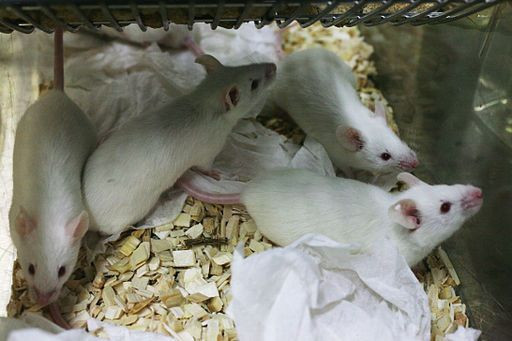Lung Cancer Cure? Gene Therapy Eradicates Tumors in Mice

Lung cancer was cured in mice that had up to 200 tumors, with a gene therapy that blocked the production of a protein that drives tumor development.
Most gene therapy cancer treatments eventually fail because tumors eventually become resistant, and find other growth mechanisms that circumvent the therapy's target genes.
This study, however, found that the lung cancer cure was effective after several rounds of therapy and had no evidence of only mild and reversible side effects. The next step is to adapt the treatment for safe testing in human clinical trials.
The gene therapy targeted the Myc protein, which can lead to uncontrolled cancerous cell growth if it is overproduced in the body. According to the researchers, Myc has a unique role in cell growth that cannot be replaced or substituted by some other pathway or mechanism.
The mice were given antibiotics that activated a mutant gene called Omomyc, which inhibited Myc production. Previous studies had inhibited Myc with this procedure, but scientists were concerned that it would fail as a cancer cure and lead to the return of aggressive lung tumors.
This experiment, led by Dr Laura Soucek of the Vall d'Hebron Institute of Oncology in Barcelona and published in the Genes and Development journal, tested the gene therapy over a prolonged period on mice with up to 200 lung tumors.
The mice were given the therapy for over a year, with four-week periods of therapy alternating with four-week periods of rest.
All the tumors disappeared after the first treatment, but then 63 percent returned. After the second treatment, only 11 percent of the tumors relapsed. After eight cycles of treatment, there were only two tumors - the lung cancer cure worked.
"The most important finding was that there were no signs of resistance to treatment," said Dr. Soucek to the Telegraph. "This is one of the biggest disadvantages of many anticancer therapies: the disease develops resistance and can return even more aggressively."
Since this Myc-targeted gene therapy was provided over successive periods, it was increasingly effective as a lung cancer cure in preventing the return of the tumors.
"The fact that the results are maintained over time, that there is no tumour relapse and no resistance, suggests that Myc-targeted therapy may offer an unprecedented way forward.
"We're so excited about reaching this turning point and I am quite certain that it will change the course of cancer therapy, despite there being a long road ahead."
Other researchers caution that though the study shows a promising target, the jury is still out about whether this gene therapy treatment will be an effective lung cancer cure in humans.
"It would be a good idea in humans to try and find a way to block that gene," said Francesco Pezzella, Professor of Tumour Pathology at Oxford University to the Telegraph. "But the way they have done it is not possible in humans because it requires a modified gene which is inserted inside the [mice's] cells.
"It gives the green light for pharmaceutical studies to try to find a compound that can block this gene...but whether it would be possible to block it in humans is still completely unknown."
Still, it provides a compelling target. If the Myc gene therapy works as a lung cancer cure in humans, it may eventually lead to drugs that can effectively treat a wide variety of other cancer types that use the same mechanism.



























